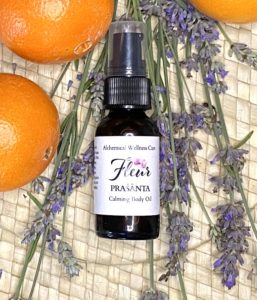“When we give cheerfully and accept gratefully, everyone is blessed.” ―Maya Angelou
Grace and gratitude share something in common. Grace isn’t something that we earn, it’s something that is given. Gratitude is a response to what is given as a gift. Appreciation is acknowledgment and gratitude.
Grace, gratitude, and appreciation are universal emotions that enhance nearly every aspect of human life. Through practice, gratitude and grace can be strengthened, just as compassion can be cultivated.
With the Thanksgiving holiday just around the corner, our hearts and minds turn toward the individuals in our lives for whom we are most grateful. Thanksgiving always reminds us to take a break from the busyness of our lives and focus on expressing gratitude for all that the universe has provided for us this past year.
November is National Family Caregivers Month
Family care providers are a diverse group of people representing almost every age, gender, race, and ethnicity. They may be health professionals, family members, friends, social workers, or members of the clergy. They may give care at home or in a hospital or other health care settings.
Informal or unpaid care providers (family members or friends) are the backbone of long-term care provided in people’s homes. They are responsible for the physical care and emotional support of someone who can no longer care for themselves due to illness, injury, or disability. Some care providers may also assist with legal and financial matters.
While some family care providers share the burden of care with an unpaid aide, professional caregiver, or housekeeper, this is not the case for all. Over 40 million individuals in the US provide unpaid care for a loved one. One-third of family caregivers meet the needs of their loved ones without any outside assistance.
These caregivers are our mothers, grandmothers, and aunties who tirelessly devote themselves to improving their loved one’s quality of life. For some, caring for a family member may become a sacred calling.
The Archetype of Caregiving
The archetype of the caregiver is expressed through empathy, selfless service to others, and benevolence. Authentic caregivers offer compassion, generosity, and natural nurturing. It’s often through selflessly giving that they experience a sense of purpose and achievement.
A caregiver’s identity can be an important source of meaning, self-worth, and self-esteem. When a caregiver becomes a parent, he or she evolves into a new state devoted to nurturing and protecting their children.
As our parents and extended family grow older, become ill or incapacitated, we are once again urged to lend a supporting hand. Their vulnerability is our vulnerability.
Caregiving is Not for the Faint of Heart
The role of caregiving sometimes comes as a complete surprise. Caregivers are at increased risk for negative health consequences even when some aspects of caregiving are rewarding. Adult children can derive a sense of purpose and meaning from their caregiver identity only if they feel that they are meeting the expectations that they have for themselves.
To be emotionally present, comfort someone who is hurting, or remain patient with someone upset, angry, or grieving is more than a skill — it is grace. Never underestimate caregivers’ strength in providing support to those who need it most of the emotional and physical toll it can take on them.
Many caregivers provide help or are “on-call” almost 24 hours a day. This means that little time is left for work, friends, or other family members. Research indicates caregiving takes a significant emotional, physical, and financial toll. With nearly half of all caregivers over age 50, many are vulnerable to a decline in their own health.
Caregivers report much higher levels of stress than people who are not caregivers. Caregiver stress” syndrome is due to the emotional and physical strain of caregiving. It typically results from a person neglecting their own physical and emotional health because they are focused on caring for an ill, injured, or disabled loved one. This has a significant impact on the lives of those who take care of their loved ones.
If you are a caregiver, regardless of how much you want to give to others, your own health is likely to suffer if you don’t take care of yourself first. Even the most capable individual can be challenged by the emotional stress involved with providing care. Juggling responsibilities are particularly distressful for those who are working.
It is common for difficult feelings to manifest. Anger, anxiety, sadness, isolation, exhaustion, and the guilt associated with these feelings can feel overwhelming. Once you have recognized the signs of caregiver stress syndrome, the next step is to manage it. A healthy lifestyle results in fewer physical problems and closer proximity to important emotional support. The key is to make your own health a priority so that you can continue to provide care for your loved one.
As I reflect on my mother’s quality of life living in a memory care facility, I felt helpless to care for her personally. I lived four hours away, worked full time, and was unable to provide the physical care she needed daily. I worried about the care she was receiving, and I experienced a lot of subsequent stress. I relied upon my mother’s caregivers to provide what I couldn’t. Yet, I was thankful she was in a safe place.
Gratefully, I had Holistic Tools to Help Me
As an integrative mental health professional, I knew that my own self-care was essential for my psychological and physical wellbeing. Feeling my feelings and grieving for my mother became a conduit for grace.
My holistic lifestyle routine helped me to stay balanced and internally resourced. I intentionally took quiet time for myself allowing me to set my priorities. Besides saying ‘no’ to more “time and energy” demands, I ate well, took long walks along the seashore, and committed to early-morning yoga practice, which helped set my day.
 I also relied on flower essence aromatherapy Alchemical Wellness Care to help my nervous system de-stress and stay calm. I used Prasanta Calming Body Oil to help soothe my nerves. For my overactive mind, I used Anxiety Relief Spray.
I also relied on flower essence aromatherapy Alchemical Wellness Care to help my nervous system de-stress and stay calm. I used Prasanta Calming Body Oil to help soothe my nerves. For my overactive mind, I used Anxiety Relief Spray.
When I felt my attention dissolving into a sea of unknowns, I used Clarity & Focus Spray to bring me back to the present and for remembering the good times my mother and I shared together.
Attunement Ritual Essence opened my nightly ritual as I filled a bath and soaked in Sea of Life Bath Salt. Just before bed, I would massage Nidra Rest and Restore Oil into the soles of my feet and would soon slip into deep restorative sleep.
Grace moves us to act, to change, to grow, to love more, and in ever-new ways. Grace is a gift in movement. When we allow its contribution to move us and move through us we pass along its gift.
Even as my mother mentally slipped away, my heart was full of appreciation for the humanity and kindness of others. Seeing the infinite cycle of grace through the blessings of my mother’s caregivers filled me with gratitude.
If you know a caregiver, it is important that you offer your thanks and appreciation to those who provide care whether it be domestic, medical, emotional, or financial support. It can be as simple as a smile, a phone call, or a grateful note of acknowledgment. It lets the caregiver know they are not alone.
As we approach the Holiday Season, the Focus is on Family Quality Time
Remembering that it takes a village to raise a child, it also takes a village to care for those in need. Together we can be grace.
For all the love that weaves our hearts together, I am grateful to Shakti – the Sacred Feminine, and to our Mother, the Earth, for all she gives us. We are sustained by her aromatic treasures and her healing essences.
I am grateful for good health, my ability to make meaningful contributions as well as deep connections with those I love and am loved by; my family, friends, and clients.
This Thanksgiving may your heart be blessed with gratitude, grace, and deep appreciation. May the caregivers in your life be blessed by your acknowledged appreciation as you remember their selfless service.
Aromatically yours,
Vidya

